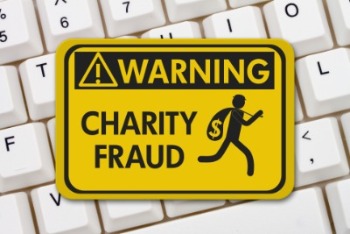Charity fraud is an insidious crime that plays on the goodwill and generosity of people wanting to make a positive impact in the world. In essence, charity fraud occurs when unscrupulous individuals or organizations pose as legitimate charities—or fabricate names that sound convincingly charitable—to deceive donors into giving money under false pretenses. This not only diverts funds away from genuine charitable causes but also erodes public trust in charitable organizations overall. Understanding how charity fraud operates and knowing how to recognize and prevent it are crucial steps in ensuring your donations reach those in need.
Recognizing Charity Fraud 
Identifying charity fraud requires vigilance and skepticism. Here are some red flags:
Unsolicited Requests for Donations - Be wary of unexpected requests for donations through phone calls, emails, or social media messages. Legitimate charities typically don’t solicit donations this way without prior engagement.
Vague Information - If the organization cannot clearly explain its mission, how donations are used, or provide proof of its activities, this is a significant warning sign.
Lack of Documentation - Legitimate charities should be able to provide documentation of their tax-exempt status upon request. If they refuse or are unable to do so, consider it a red flag.
Payment Methods - Be cautious if a charity insists on cash donations or using unconventional methods such as wire transfers or gift cards. Credit card transactions through secure platforms
Website Discrepancies - Look for inconsistencies in web addresses (URLs), poorly written content, or missing contact information on websites claiming to represent legitimate organizations.
How to Prevent Charity Fraud
While charity fraud is a growing concern, there are steps you can take to protect yourself:
Research Before Donating - Before making any donation, take the time to research the organization thoroughly. Use resources like Charity Navigator, GuideStar, or the Better Business Bureau’s Wise Giving Alliance to verify legitimacy.
Verify Tax-Exempt Status - Confirm that the charity is registered with the IRS as a tax-exempt organization by checking the IRS website’s Exempt Organizations Select Check tool.

Ask Questions - Don’t hesitate to ask for detailed information about the charity’s mission, how funds are allocated, and who benefits from your donation.
Be Skeptical of High-Pressure Tactics - Legitimate charities will respect your decision-making process and will not pressure you into making immediate donations.
Use Secure Payment Methods - Opt for secure payment methods such as credit cards or checks instead of cash or wire transfers.
Protect Personal Information - Be cautious about sharing personal information such as your Social Security number or banking details with any charity soliciting donations.
Be Wary of Emotional Appeals without Substantiation - While many legitimate causes rely on emotional stories to convey their message, ensure these appeals are backed up by verifiable facts and figures.
Double-Check URLs and Contact Information - Always ensure you’re visiting a legitimate charity’s website by typing the URL directly into your browser rather than clicking on links provided in unsolicited emails or messages.
Charity fraud exploits our inherent desire to help others by manipulating emotions and trust—an unfortunate reality in today’s digital age where scams can proliferate rapidly online and offline alike! By staying informed about common tactics used by these criminals alongside practicing due diligence before making any contribution towards seemingly noble causes – we can all play an active role not only safeguarding individual contributions but also supporting genuine organizations dedicated towards fostering positive change worldwide!


